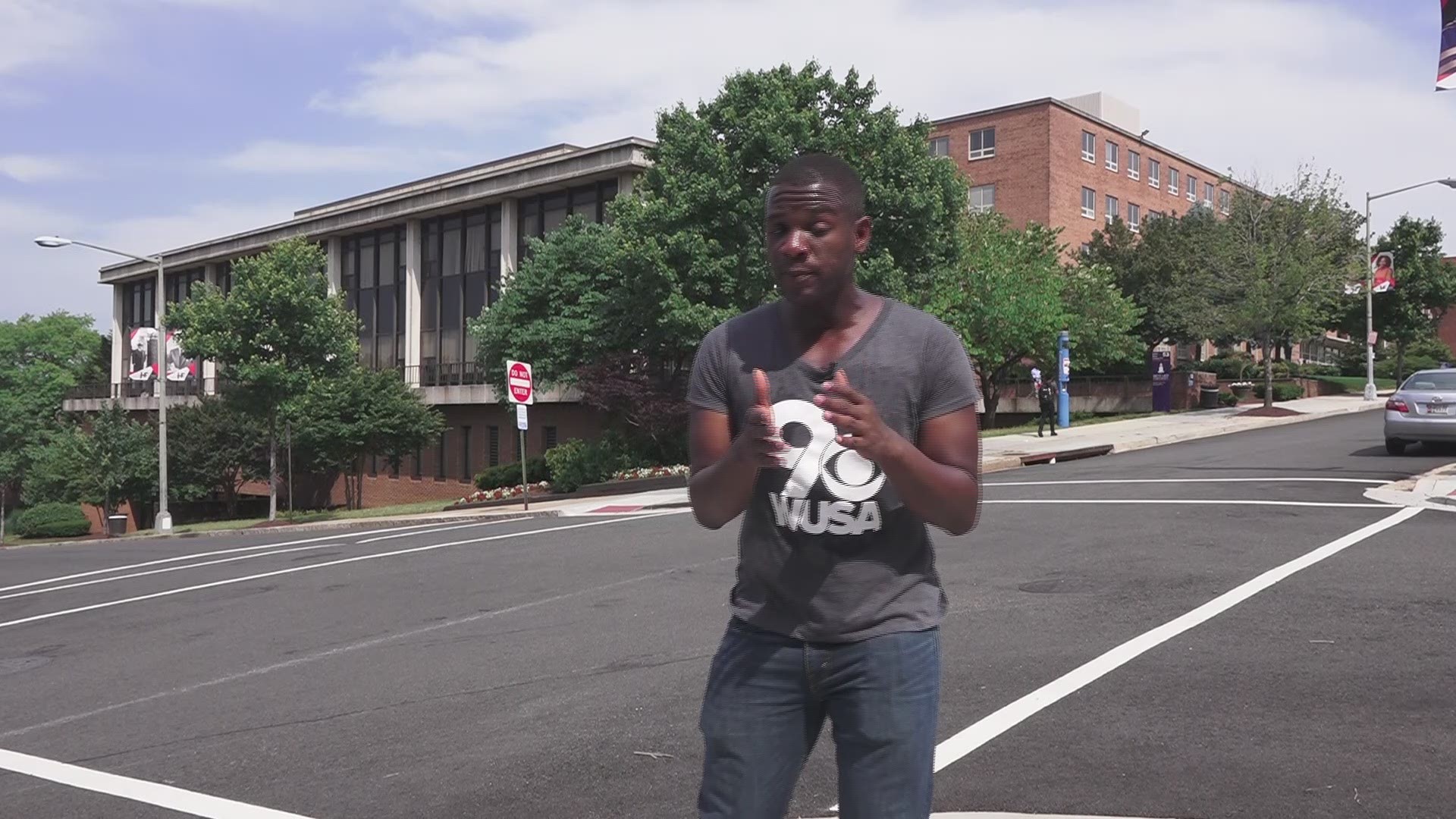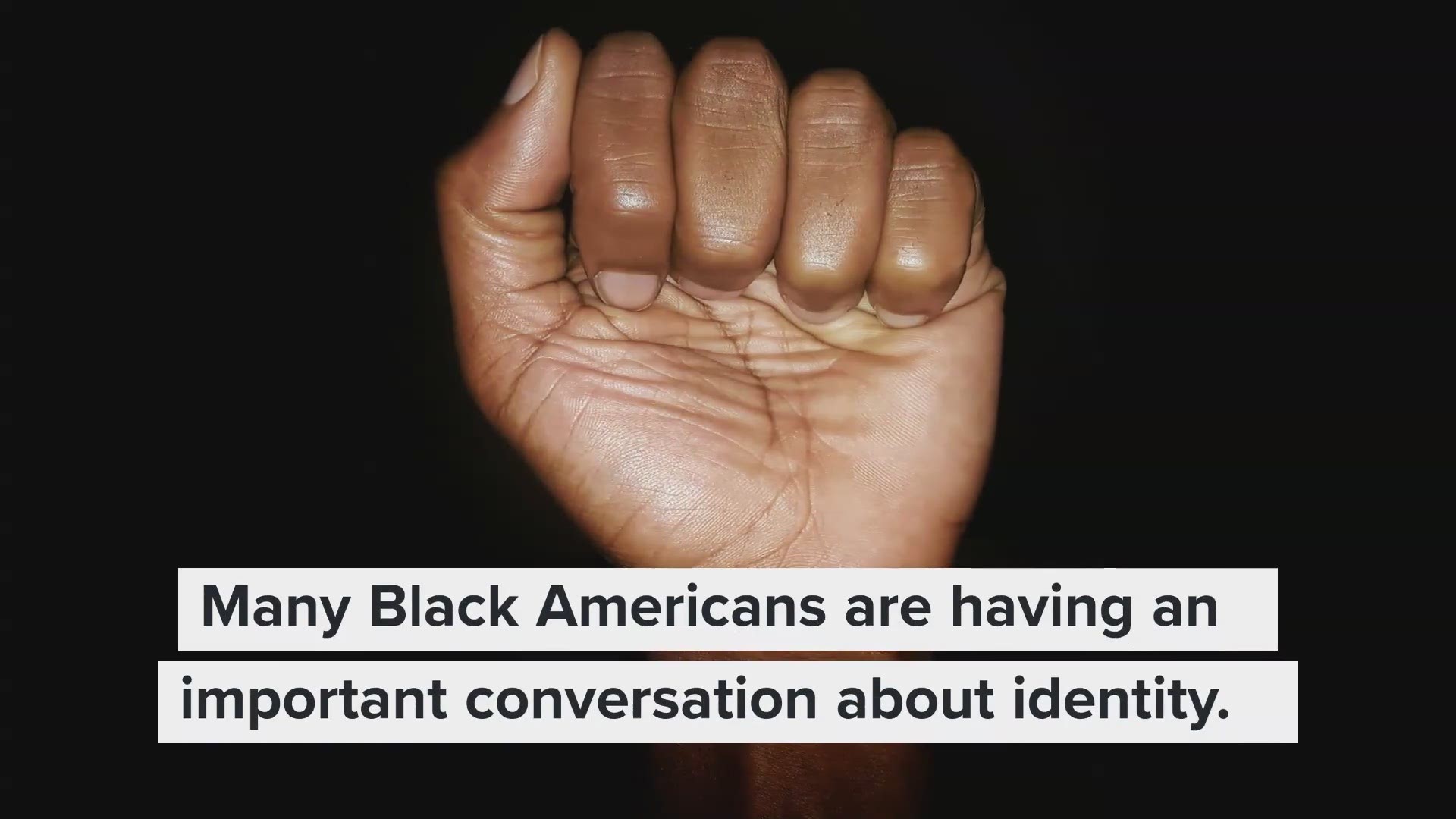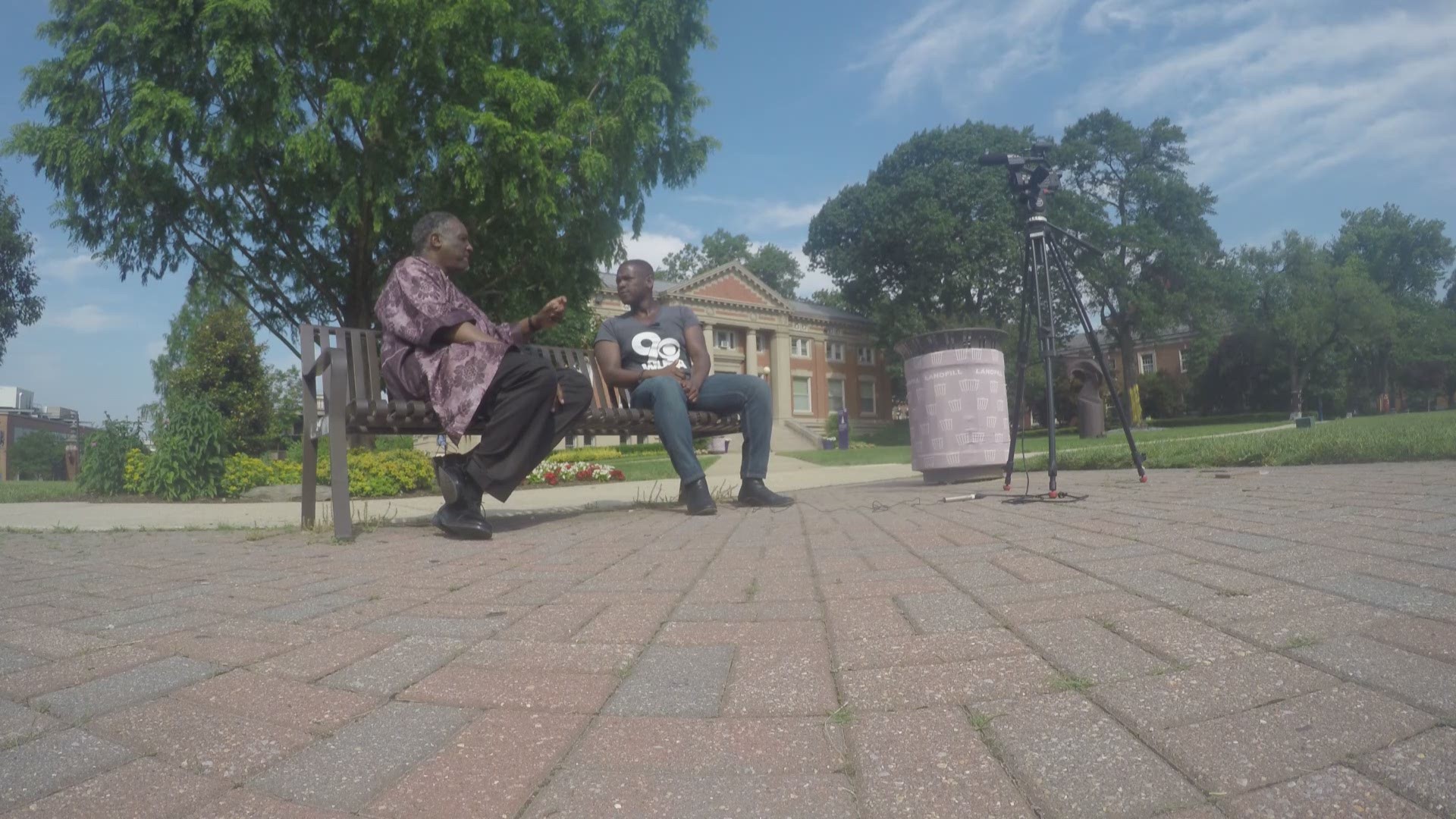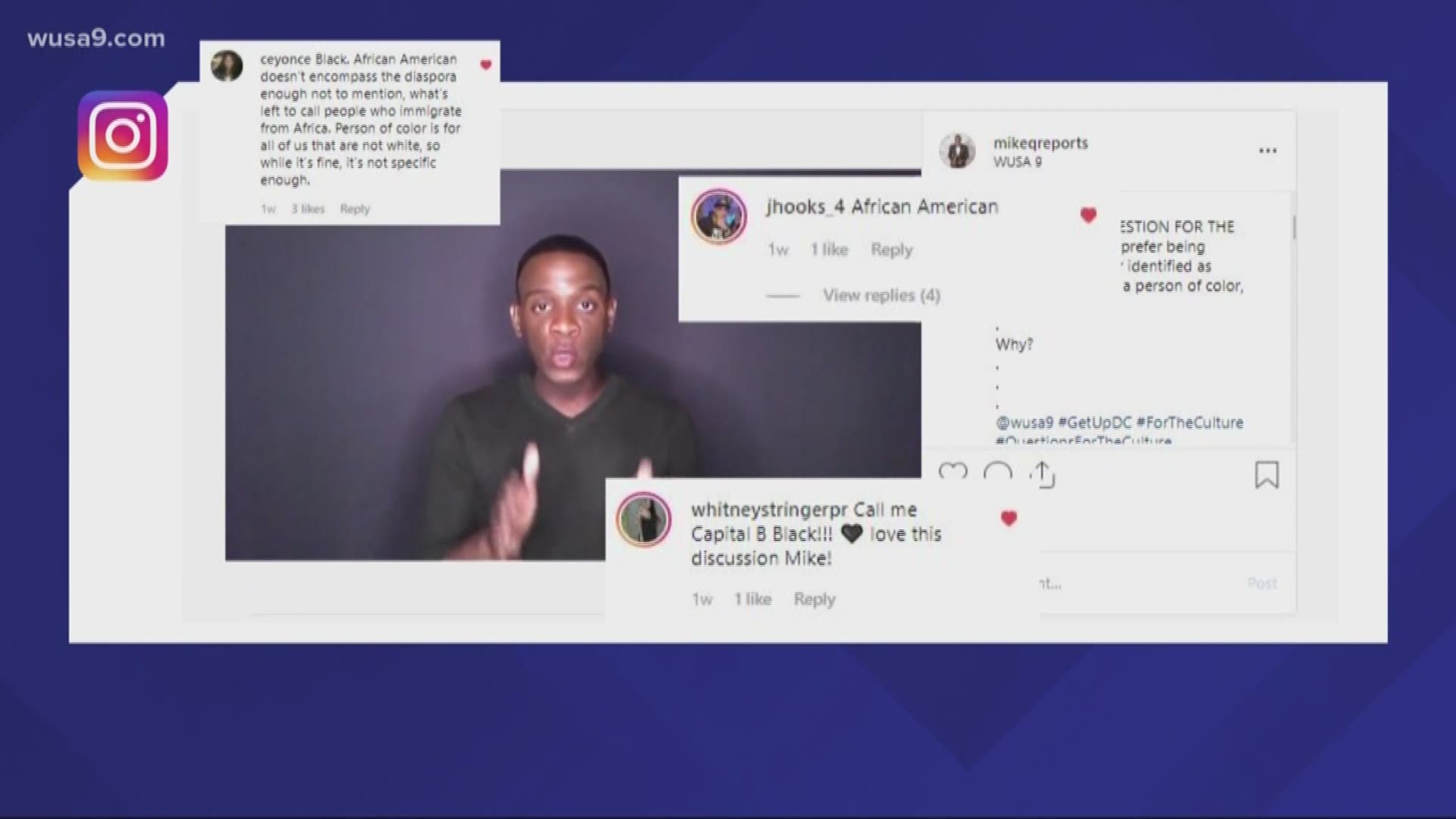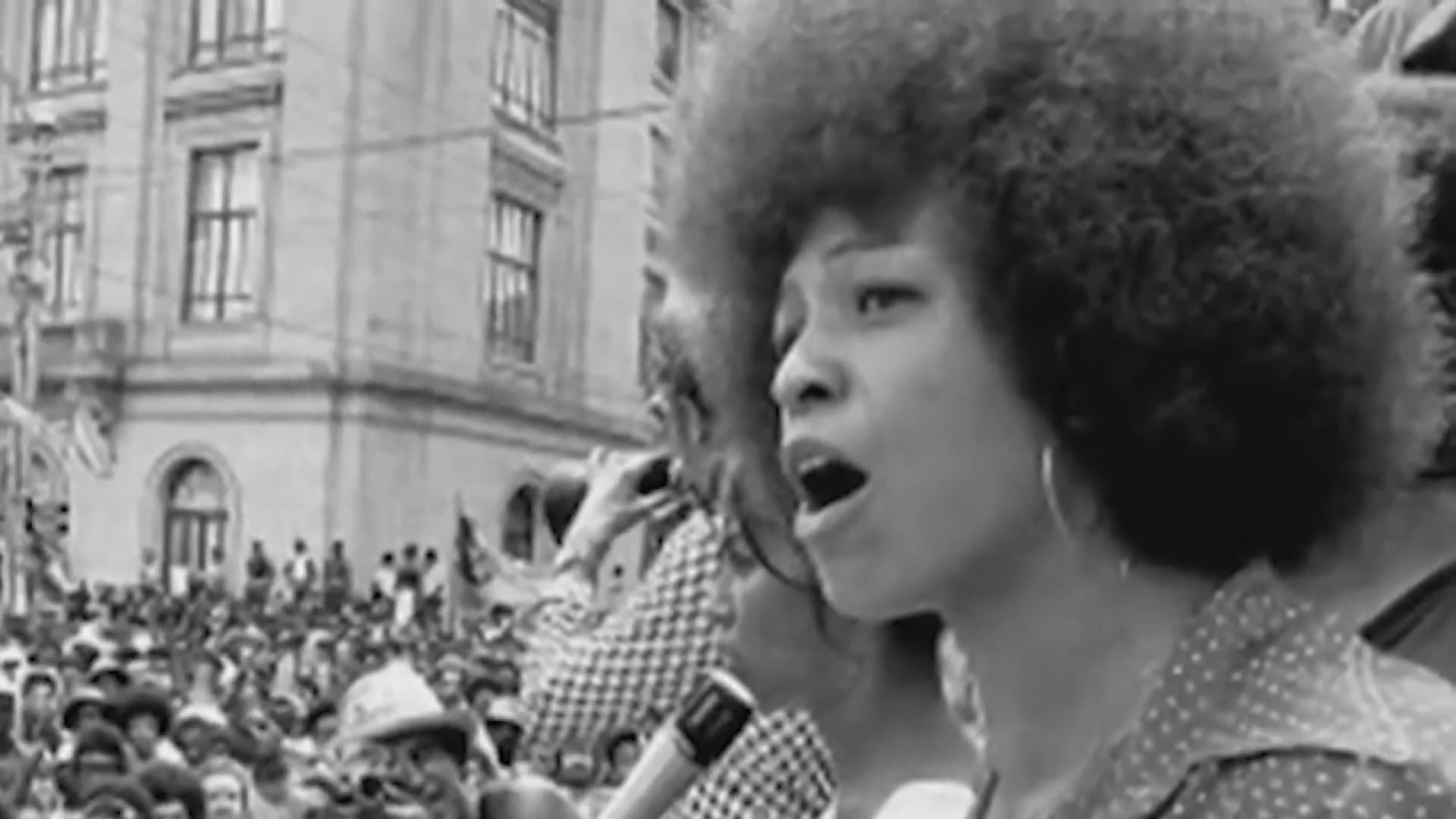WASHINGTON — When it comes to Black Americans, there are several terms often used to identify people from the community.
Nowadays, some of the most common labels tend to be African-American, Black, or Person of Color.
The dictionary definition of African-American is "an American of African and especially of Black African descent."
A Black person is described as "of or relating to any of various population groups having dark pigmentation of the skin" or "of or relating to African-American people or their culture."
Person of color had the broadest explanation as "a person who is not white or of European parentage."
The term 'African-American' is typically used to describe ethnicity while ‘Black’ often describes race.
For example, Black people who live in America but are from other parts of the world other than Africa may not identify as African-American. However, those factions of people may still consider ‘Black’ to be their identity.
Greg Carr, an associate professor and the chair of Howard University’s Department of Afro-American Studies, said despite the dictionary definitions, there's no term that truly describes people that were taken from Africa and forced into slavery.
"We see these debates beginning literally from the time people came here." Very early on, of course, the label that we were given -- whether it be the N-word, or Black, or Negro -- were just to give us our status as property."
The word "colored" emerged in the 19th century to describe Black people in America.
"Because now there’s a struggle particularly among northern Blacks -- free Blacks to attempt to acquire some of the rights of America," Carr said. "They use colored, ironically, to exclude the masses of Negroes."
Names and identities continued to evolve throughout history, and self-identity within some Black American communities became generational.
"I think any group of human beings responds to their time," Carr explained. "The consistent thing when it comes to people of African descent in this country is the declaration that we are fully human and that we want to be as free as any other human being."
"Black" is a term that was used as a sense of pride and empowerment during the so-called "Black power" movement in the 60s and 70s.
"That really is a political term," Carr said. "When you say ‘Black’ there is no ambiguity. It’s like a fist which may be why some white people don’t like to use it because it’s like ‘Can I see Black?'"
African-American, as described by Carr, is an attempt to acknowledge the source of Black Americans' origins.
"Not only is this something not to be ashamed of, it is something to be embraced," he said. "African-American is almost like that political term that says 'We are Africans and we are Americans which means you will not deny us our rights and we have a right to embrace our culture.'"
Several people responded to WUSA9 on social media to explain how they prefer to be identified.
Most people surveyed on Instagram, Facebook, and Twitter said they would prefer to be recognized as Black before African-American or a Person of Color.
The most common reason for embracing the black identity is because some felt it was more inclusive of the black experience in America, regardless of origin.

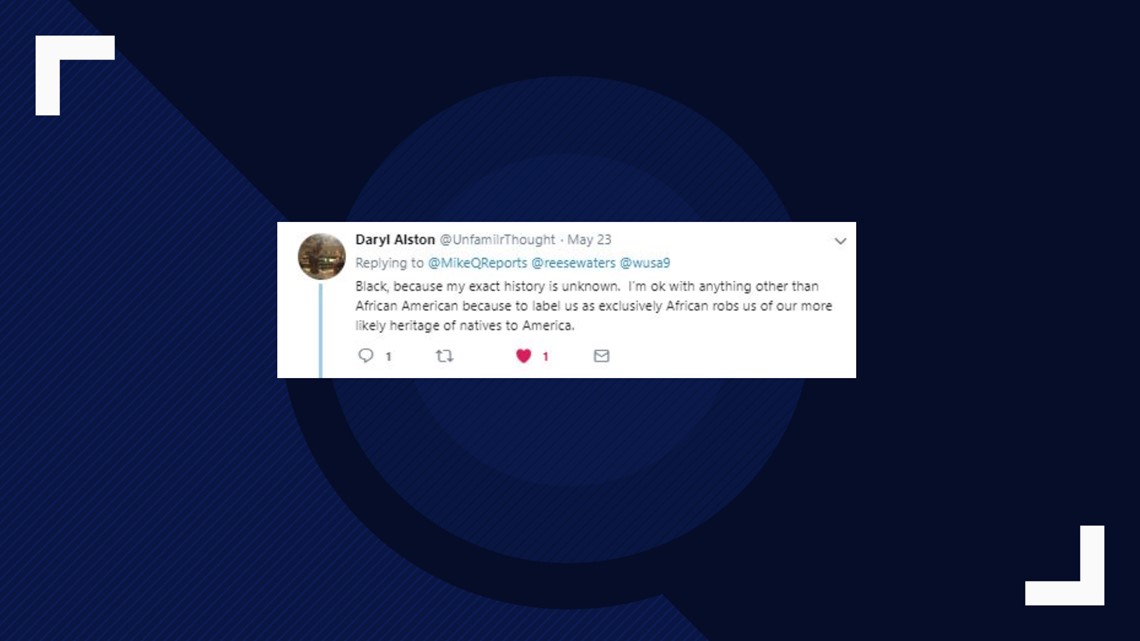
"Regardless of what we called ourselves, we are going to be grouped together," Carr said. "That is the demographic reality of enslavement and its aftermath: racial oppression. That’s just how it’s going to be."
He explained that much of the conversation around titles and identity is about African-American people "wanting to be human in the world without restriction.”
When asked what guidance Carr would give non-Black people about referring to African-Americans, he said the simplest thing to do is the ask the person they're talking to how they preferred to be identified.
"The fallback name African-American is the name that acknowledges the Africa that has never been absent and the America that is more aspirational than it is in a reality," Carr said.

